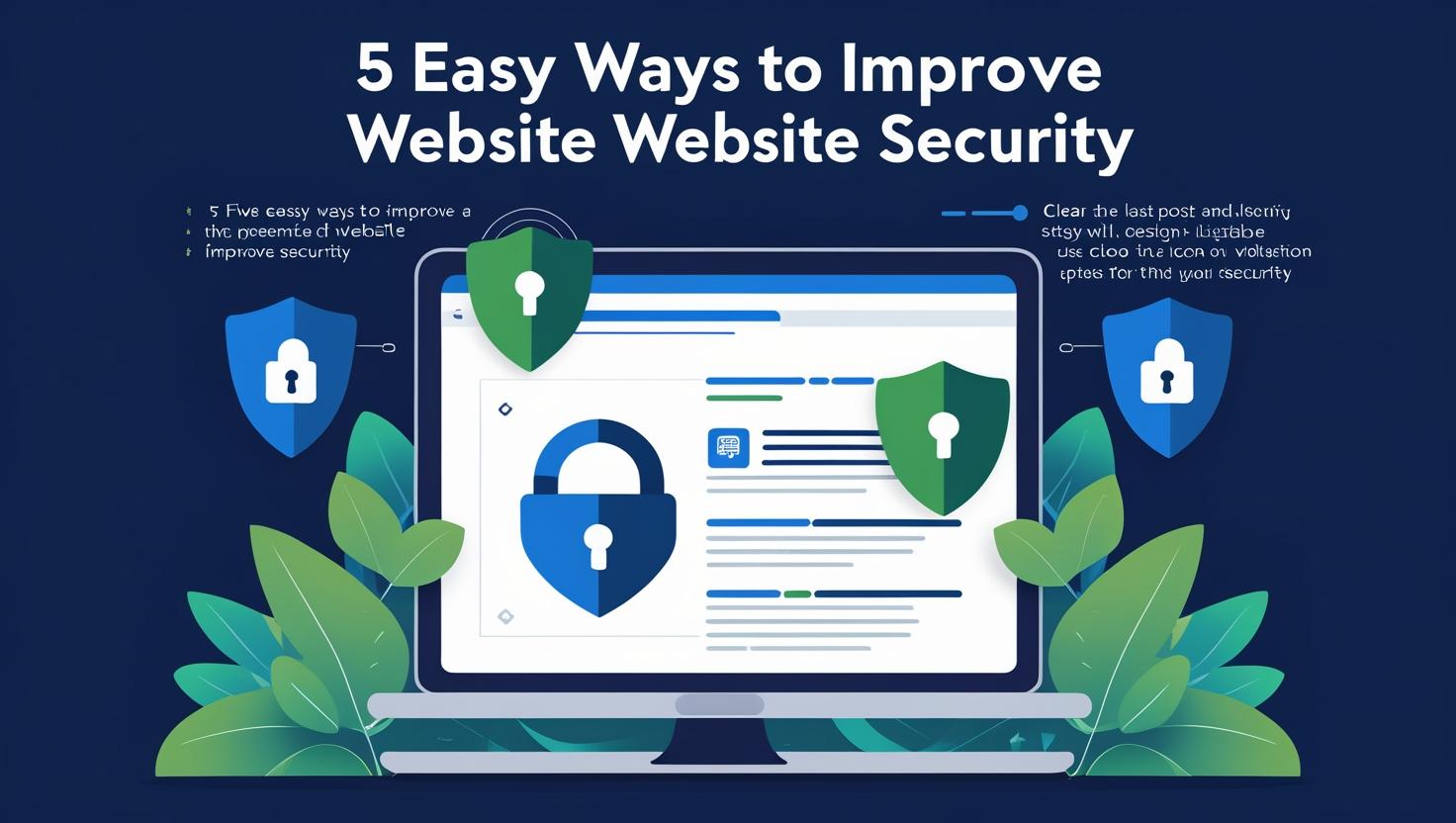
5 Easy Ways to Improve Website Security
🔐 5 Easy Ways to Improve Website Security
Website security is no longer optional — it’s essential. From small business owners to large enterprises, everyone is a target for cyber threats. Hackers are constantly on the lookout for vulnerabilities, and even a single breach can lead to data theft, revenue loss, reputational damage, or even legal consequences.
The good news? You don’t need to be a cybersecurity expert to secure your website. By following a few simple, actionable steps, you can drastically improve your site’s defense against cyberattacks.
Here are 5 easy and effective ways to enhance your website security today.
✅ 1. Install an SSL Certificate (Use HTTPS)
The first and most basic layer of website protection is installing an SSL (Secure Socket Layer) certificate. It encrypts the data transferred between your website and your users — including login credentials, personal information, and payment details.
Why it matters:
-
Builds trust with users (browser shows a padlock symbol)
-
Secures customer data
-
Required for online payments
-
Improves your Google search ranking
Bonus Tip: Most modern hosting providers (like HiveRift) offer free SSL certificates with their plans.
✅ 2. Keep Software, Plugins & Themes Updated
Outdated CMS platforms, plugins, themes, or scripts are the #1 entry point for hackers. Developers regularly release updates to patch known vulnerabilities. Failing to update leaves your site exposed.
What to do:
-
Regularly update your CMS (WordPress, Joomla, Drupal, etc.)
-
Remove unused plugins and themes
-
Use auto-update options when available
Pro Tip: Use a staging environment to test updates before applying them on your live site.
✅ 3. Use Strong Passwords & Enable Two-Factor Authentication (2FA)
Weak or reused passwords are an open door for brute-force attacks. Strengthening login credentials is one of the easiest ways to prevent unauthorized access.
Best practices:
-
Use long, complex passwords with a mix of characters
-
Change passwords regularly
-
Never reuse passwords across platforms
-
Enable 2FA for all admin logins (adds a second layer of protection via OTP or authenticator apps)
Recommended Tools:
Use password managers like LastPass or 1Password to generate and store secure passwords.
✅ 4. Install a Web Application Firewall (WAF)
A WAF acts as a shield between your website and the internet. It monitors and filters traffic to block malicious activity like SQL injections, XSS attacks, and bot access.
Why it’s essential:
-
Stops common hacking attempts automatically
-
Blocks fake or suspicious traffic
-
Reduces server load
-
Provides real-time threat detection and logging
Options:
-
Cloud-based WAF (like Cloudflare or Sucuri)
-
Server-level WAF (offered in managed hosting plans)
HiveRift Tip: Most of our plans come with built-in WAF protection and firewall rules to guard your site 24/7.
✅ 5. Perform Regular Backups
Even with the best protection, no website is 100% immune to failure. If your site gets hacked, deleted, or crashes, backups are your safety net.
What you should do:
-
Schedule automated daily backups (files + database)
-
Store backups offsite or in the cloud (not just on the server)
-
Test your backups occasionally to ensure they’re restorable
Pro Tip: Use plugins like UpdraftPlus (for WordPress) or rely on your hosting provider’s automated backup system.
🔄 Bonus Tips for Extra Protection
-
Limit login attempts to prevent brute-force attacks
-
Use CAPTCHA on forms to block spam bots
-
Disable directory browsing on your server
-
Set correct file permissions (never 777!)
-
Restrict admin access by IP address
📊 Website Security Is an Ongoing Process
The digital threat landscape is constantly evolving. Staying secure means being proactive, not reactive. By applying the 5 steps above, you cover 80% of what most small to medium websites need to stay protected from the majority of threats.
👨💻 How HiveRift Helps You Stay Secure
Hosting your website with HiveRift gives you access to advanced security features out of the box:
-
Free SSL Certificates
-
Daily Backups
-
Built-in Firewall & Malware Scanning
-
Brute-force Attack Prevention
-
24/7 Monitoring & Support
Security isn’t optional anymore. With HiveRift, it’s already included.
✅ Final Thoughts
Cybersecurity doesn’t have to be complicated or expensive. Just a few proactive steps can make a big difference. By securing your website today, you protect your customers, your brand, and your bottom line tomorrow.
Ready to build or migrate your site to a secure hosting provider?
👉 Talk to the HiveRift Team today.